
Recap: Canadian Manufacturing Technology Show
October 6, 2023 | By Mario Cywinski
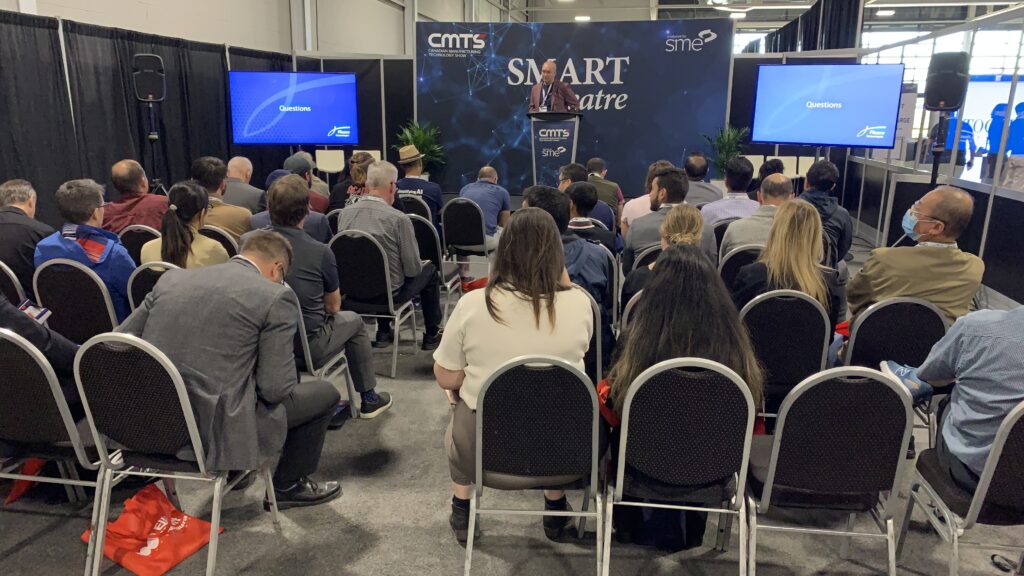 Photo: Mario Cywinski
Photo: Mario Cywinski 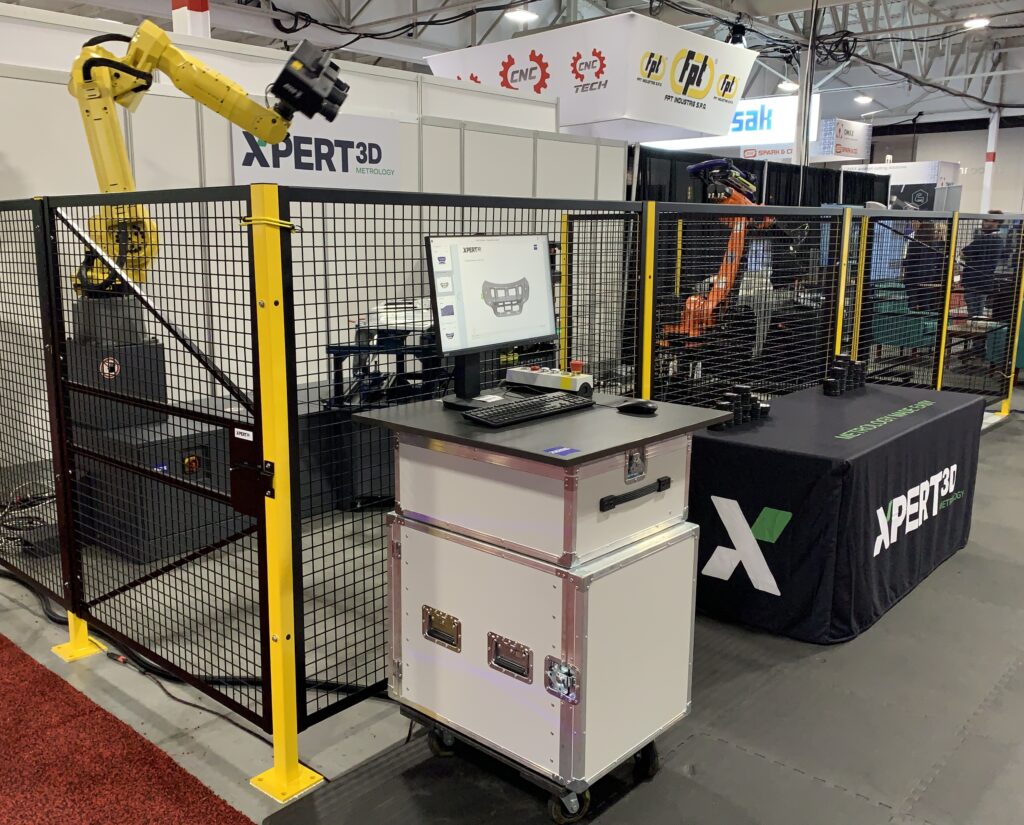
Photo: Mario Cywinski
The 2023 edition of the Canadian Manufacturing Technology Show (CMTS) drew over 8,000 attendees to the Toronto Congress Centre near the airport. The show offered attendees over 50 knowledge sessions, over 200 new products to view, over 500 suppliers and original equipment manufacturers (OEMs) to network with, and over 250,000 sq. ft. of floor space to discover.
CMTS (which takes place every other year, alternating with IMTS in Chicago) focuses on the latest equipment and technology in automation, robotics, additive manufacturing, machine tools, metal forming, fabricating, and digital transformation. Those in attendance represent many industries, including automotive, aerospace, energy, government, commercial and industrial, and oil and gas.
VISIT FROM THE PM
This year, even Canadian Prime Minister Justin Trudeau made time to visit the show. Trudeau walked the show and spoke to members of the manufacturing community. He also had a fireside chat with Flavio Volpe, president of the Automotive Parts Manufacturers’ Association, which held its Annual Conference in conjunction with CMTS.
“The future of Canadian manufacturing is incredibly exciting,” said Julie Pike, senior director, event strategy, SME, who accompanied Trudeau on the tour. “We’re seeing particular vibrancy in areas such as aerospace, automotive manufacturing, artificial intelligence, robotics, additive manufacturing (3D printing) and sustainable practices, and the latest breakthroughs in each of these areas are on full display on the show floor.”
THE TRANSPORTATION REVOLUTION
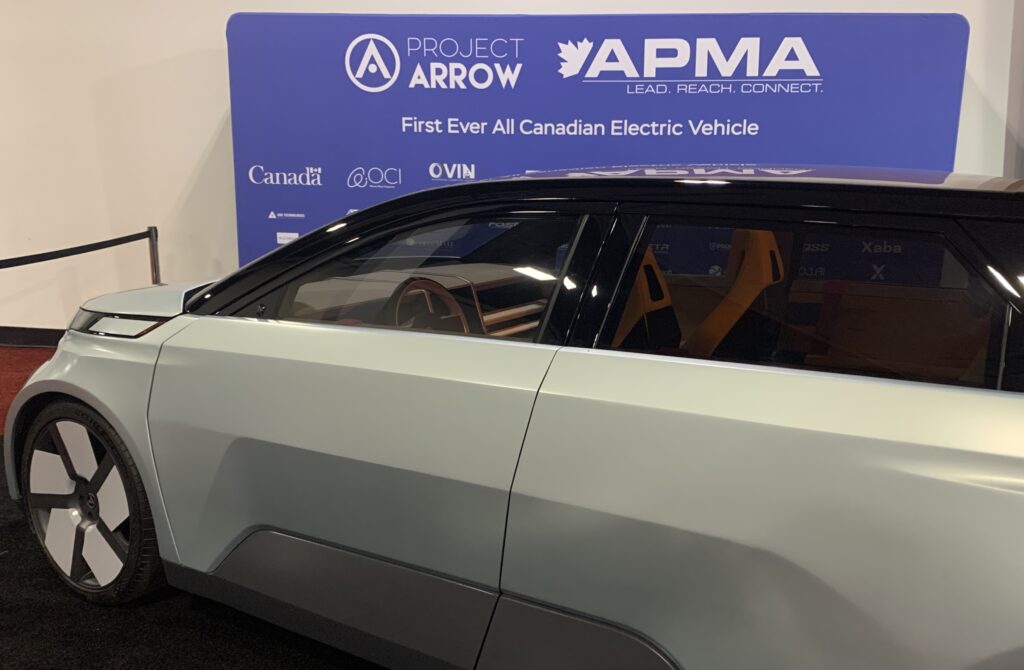
Photo: Mario Cywinski
Flavio Volpe, also provided a keynote about How Canada Can Drive the Next Transportation Revolution. He spoke about the Project Arrow, which was displayed on the CMTS trade show floor. The Arrow is an all-electric automotive concept vehicle which features materials and parts from 60 Canadian companies.
“Project Arrow is the manifestation of Canada’s answer to the challenges facing the automotive industry,” said Volpe. “It’s time to start thinking about where the next Project Arrow will drive us. Canadian automotive suppliers need insight into what that future is going to look like in order to prepare themselves to play there. The industry is being forced to switch technology and a lot of the current automakers are dealing with legacy infrastructure that makes the change difficult.”
TRADE SHOW IN FULL FORCE
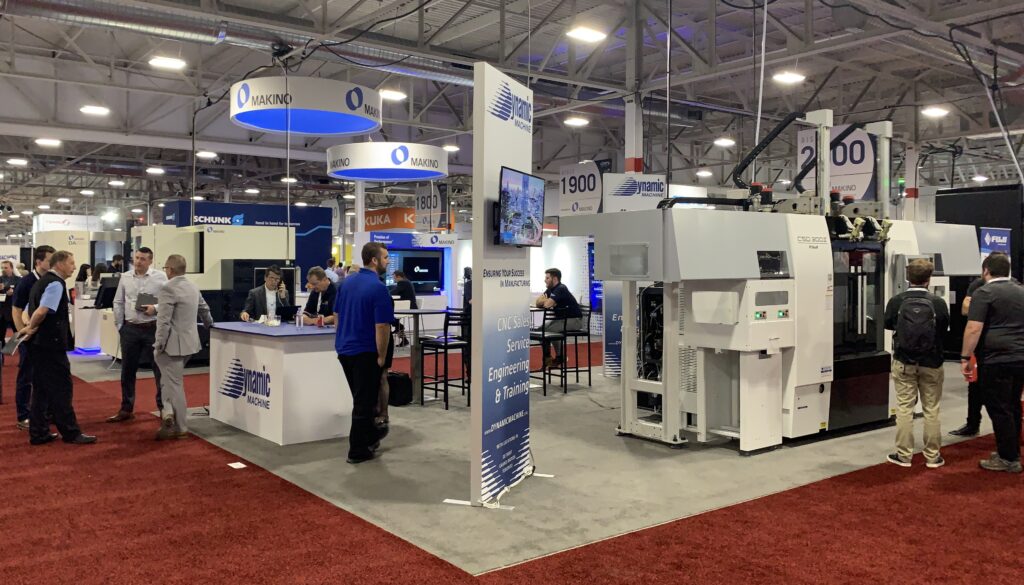
Photo: Mario Cywinski
In what was the biggest CMTS since the start of the COVID-19 pandemic, over 500 suppliers and OEMs showed off over 200 of their new products. Robotic machines were everywhere. The show floor was busy for all four days of the show, as attendees and exhibitors networked.
The show floor also included a Canadian Tooling and Machining Association tooling pavilion, a CWB-EWI welding showcase, and an emerging innovators showcase. The Smart hub was where attendees could relax and network with fellow colleagues and grab a refreshment.

Photo: Mario Cywinski
Other highlights included a smart theatre that presented a plethora of experts on the topic of smart manufacturing adoption and a bright minds student summit, which included 120 high school students.
FOCUS ON KEYNOTES
CMTS opened with a keynote by Massimiliano Moruzzi, CEO, Xaba, who spoke about Shaping Tomorrow’s Industry: Canada’s Odyssey with Industrial AI.
“It’s not about deep learning, predictive analytics, and computer vision. This is an end zone presentation where you’ll see this new wave of industrial AI that’s coming, and the impact of working with a machine that can talk to you and use its own knowledge to help solve the business challenges you face,” said Moruzzi. “All of a sudden, your shop floor becomes a cluster of knowledge, not just to help you with a particular throughput problem, but also to help you understand how you’ve positioned yourself versus a rapidly changing market.”
“At the end of the day, Canada is de-risking industrial AI for the manufacturing sector,” said Moruzzi. “Intelligent robots are finally going to unlock the potential of automation that’s been promised for years, and my message to manufacturers is it’s time to commit to a new way of doing things.”
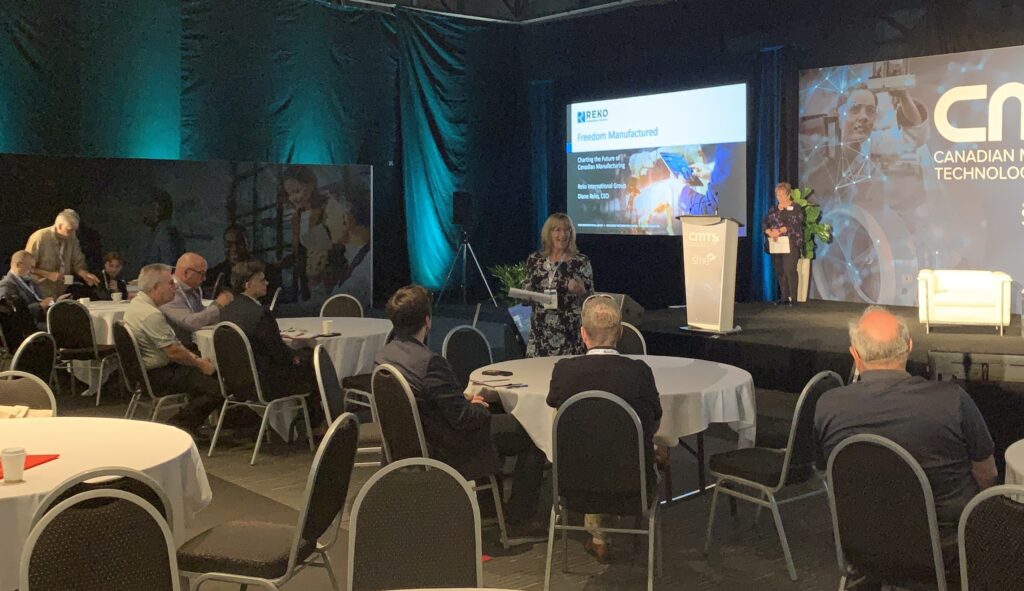
Photo: Mario Cywinski
Another day one keynote was presented by Diane Reko, CEO, Reko International Group Inc., who spoke about Charting the Future of Canadian Manufacturing.
“We’ve all just lived through a pandemic where the limitations of our domestic production capabilities were brought to light. Our dependence on outsourced production for things like masks and vaccines put us at a disadvantage compared to countries that had the required infrastructure,” said Reko. “Now, more than ever, it’s extremely important that Canadian manufacturers work together to ensure our future as an industry.”
Sarah Syed, innovator, climate activist and poet, delivered another keynote, focussing on the Impact: How to Transform Your Passions into a Medium for Change.
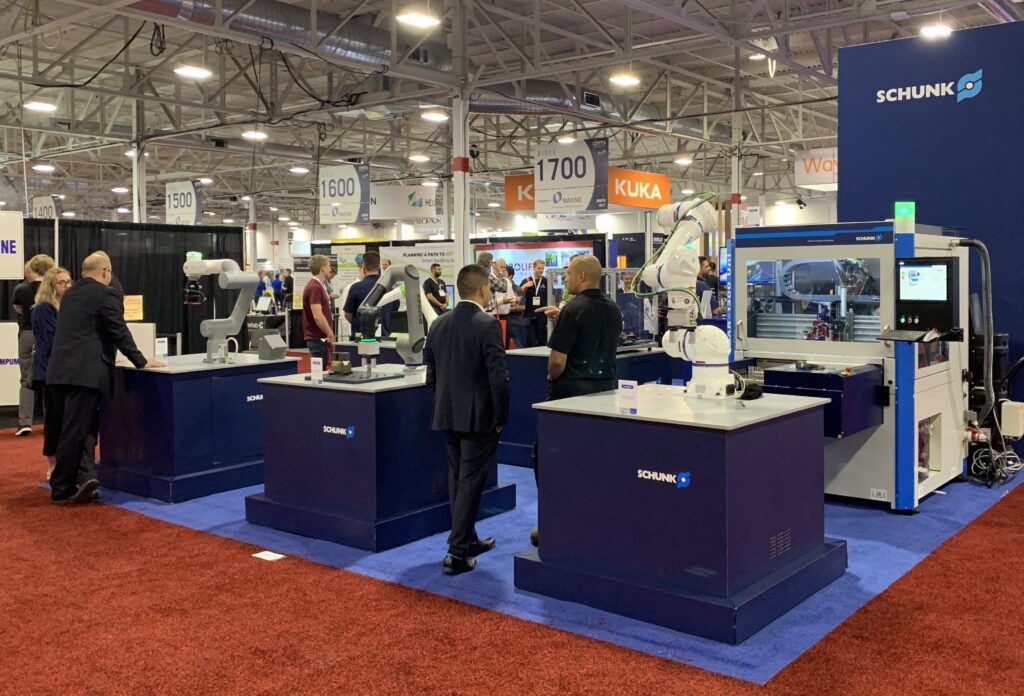
Photo: Mario Cywinski
“You don’t need to feel that you’re too young or you don’t have expertise – once you discover your passion you can use it at any age to change the world,” said Syed. “I found my love of innovation and now I want to inspire all young people to discover their passion. I truly believe that if we’re going to design and develop a sustainable future, we need to start by bridging the intergenerational knowledge gap in front of us.”
Syed also participated in the Wonderous Women in Manufacturing panel, along with moderator Julie Pike, Lisa Block, chief revenue officer, Hybrid Manufacturing Technologies, and Mihaela Vlasea, mechanical and mechatronix engineering professor, University of Waterloo.
“Sometimes when we start to place emphasis on women in manufacturing, it can give an overtone that there have been so many negatives and very little positives, but that’s not my story,” said Block. “For me, it has been absolutely essential to my career and advancement that I had male allies who pushed me to enter those spaces and to be comfortable in those spaces.”
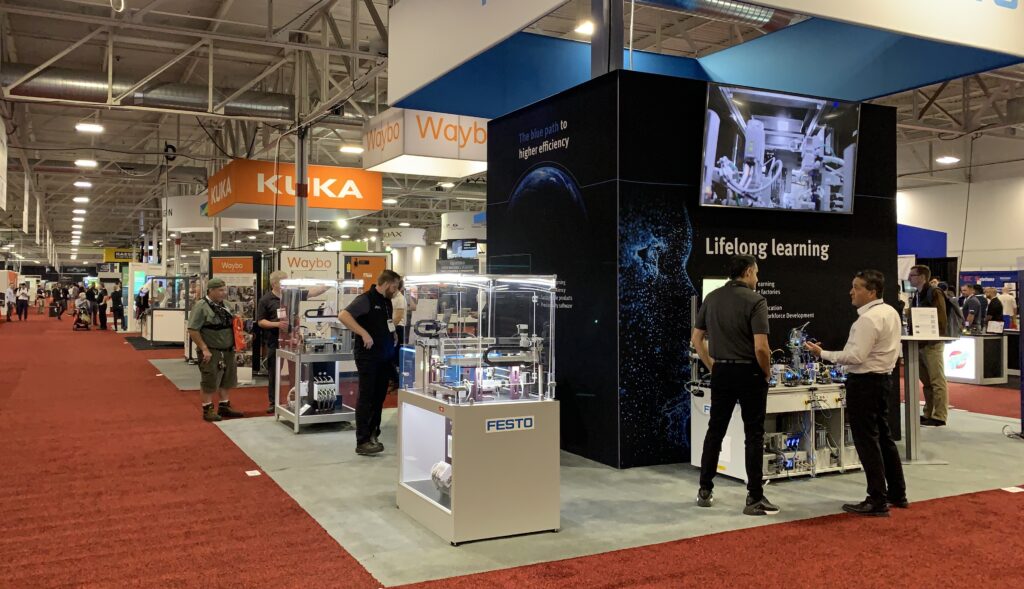
Photo: Mario Cywinski
“We shouldn’t be changing people’s passions. We need to let people pursue their interests and that’s what will lead them to long-lasting and fulfilling careers,” said Block. “If we encourage our young women to be the best version of themselves, they’ll see that the obstacles they perceive to be in front of them are not really there, and if they are, they do not matter.”
Other keynotes and panels included: Unleashing the Power of AI in Manufacturing by Chris Casey, industrial manufacturing and automotive sector lead, PwC Canada, and Micheal Gardiner, manufacturing industry lead, Microsoft Canada; Staying Ahead of the Curve with Industry 5.0, ESG and Workforce Upskilling by Subo Chatterjee, digital operations and industry 5.0, PwC Canada, Nadia Malik, transformation head, Bombardier, and Micheal Gardiner; Making the CASE (Connected, Autonomous, Security, Electric) for Canada by John Heaton, partner, KPMG LLP, Alex Qi, CEO, Pontosense, and John Komar, executive director, ACE, Ontario Tech University; and Leading in the Transforming Manufacturing Industry by Greta Cutulenco, CEO, Acerta.
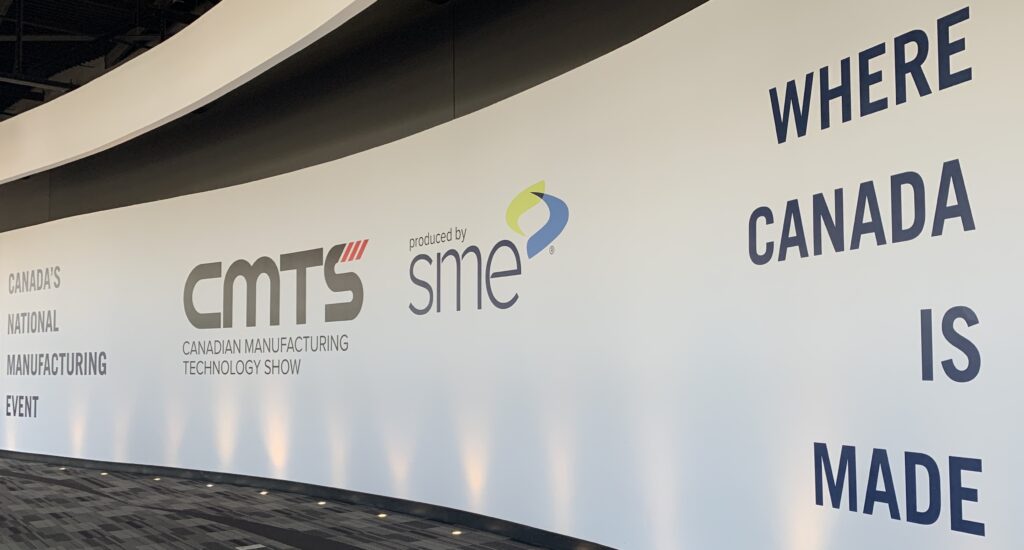
Photo: Mario Cywinski
